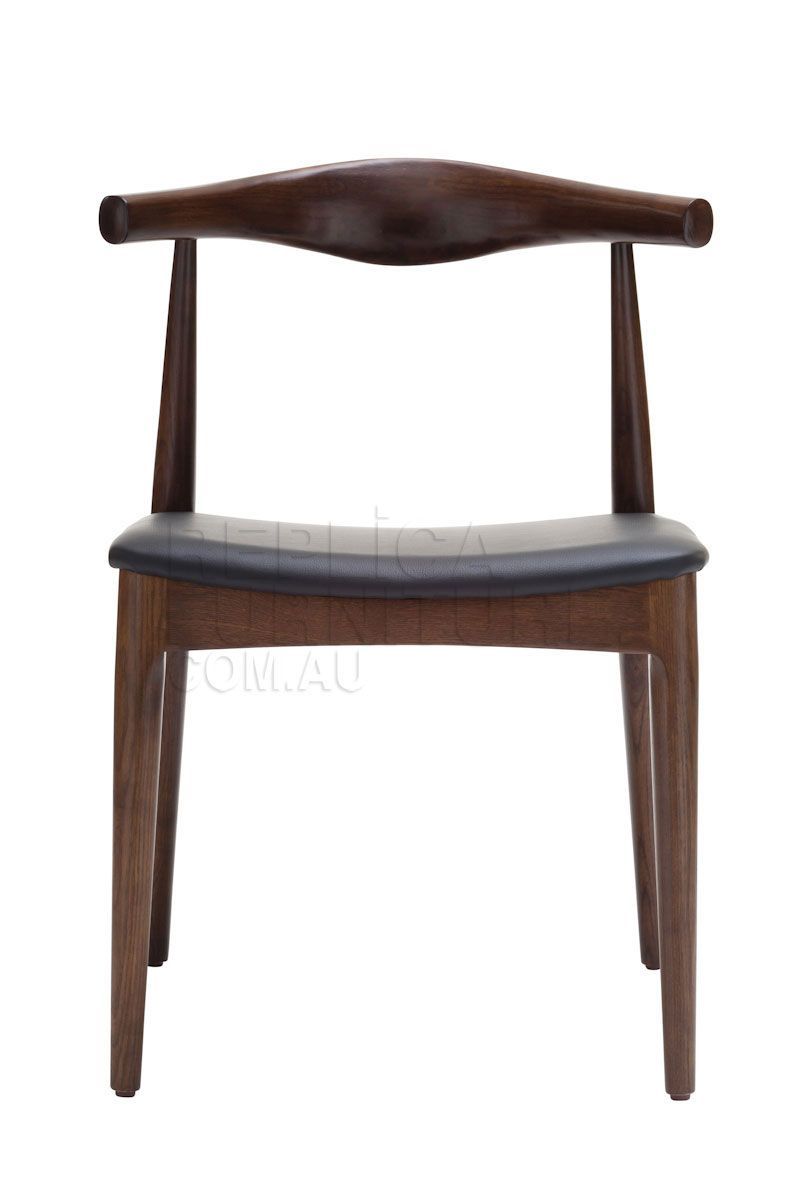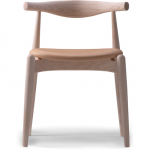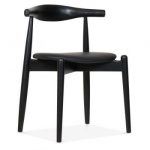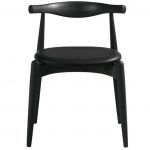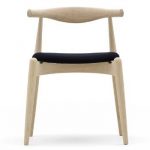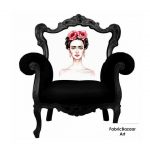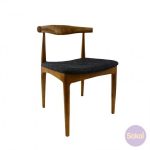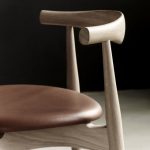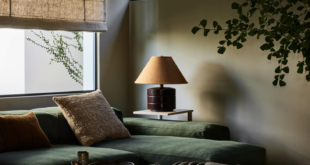The CH20 Chair, commonly known as the Elbow Chair, perfectly embodies the principles of Scandinavian design. It’s simple, appealing, functional and made from sustainable resources. Hence the Elbow Chair became an archetype of Nordic furniture.
history
The chair was designed by Hans J. Wegner – a legendary figure of Danish modernism and a famous furniture designer who had a great passion for chairs; hence its nickname “the master of the chair”.
The first prototype of the elbow chair was presented in 1956. The chair’s minimalist appearance may lead one to believe that it is relatively easy to make, which is very far from the truth. The Elbow Chair is further proof that Hans J. Wegner was way ahead of his time when it came to the design of wooden furniture. The sophisticated design of the elbow chair made it impossible to make more than one prototype with the technology available in the 1950s. The CH20 followed the same path as its younger sibling, the CH07 Shell Chair, as almost half a century had passed before it went into mass production. The furniture company Carl Hansen & Son breathed new life into Wegner’s creation and made it available in stores in 2005.
design
The design of the elbow chair has been reduced to the bare essentials, making the shape of the chair very minimalist and pure. The main purpose of the elbow chair was to provide comfortable seating for eating. The chair stands on four cylindrical wooden legs. The front legs are slightly tapered at the bottom and rounded at the top to avoid sharp corners. The rear legs, which also serve as an attachment for a backrest, are tapered at both ends. The legs are spanned with curved wooden slats that form a square base of the chair with concave sides.
The base provides support for a curved seat shell that appears to float above the legs. It consists of 11-ply veneer laminate, which is molded into the desired shape. A thin layer of cold foam on the top of the seat shell gives the chair a more comfortable feel. The seat is covered with fabric or supple leather. Perhaps the most distinctive feature of the elbow chair is its famous backrest. It’s steam bent from a solid piece of wood into its characteristic rounded shape that sticks far enough and supports the arms (hence the name of the chair). Wegner’s intelligent design of the CH20 allows up to 4 chairs to be stacked on top of each other, which increases the functionality of the chair. However, longer periods of stacking can deform the pads. For this reason it is not recommended.
The chair is available in different configurations of wooden surfaces and upholstery options.
 decorafit.com Design ideas for your home and patio
decorafit.com Design ideas for your home and patio
